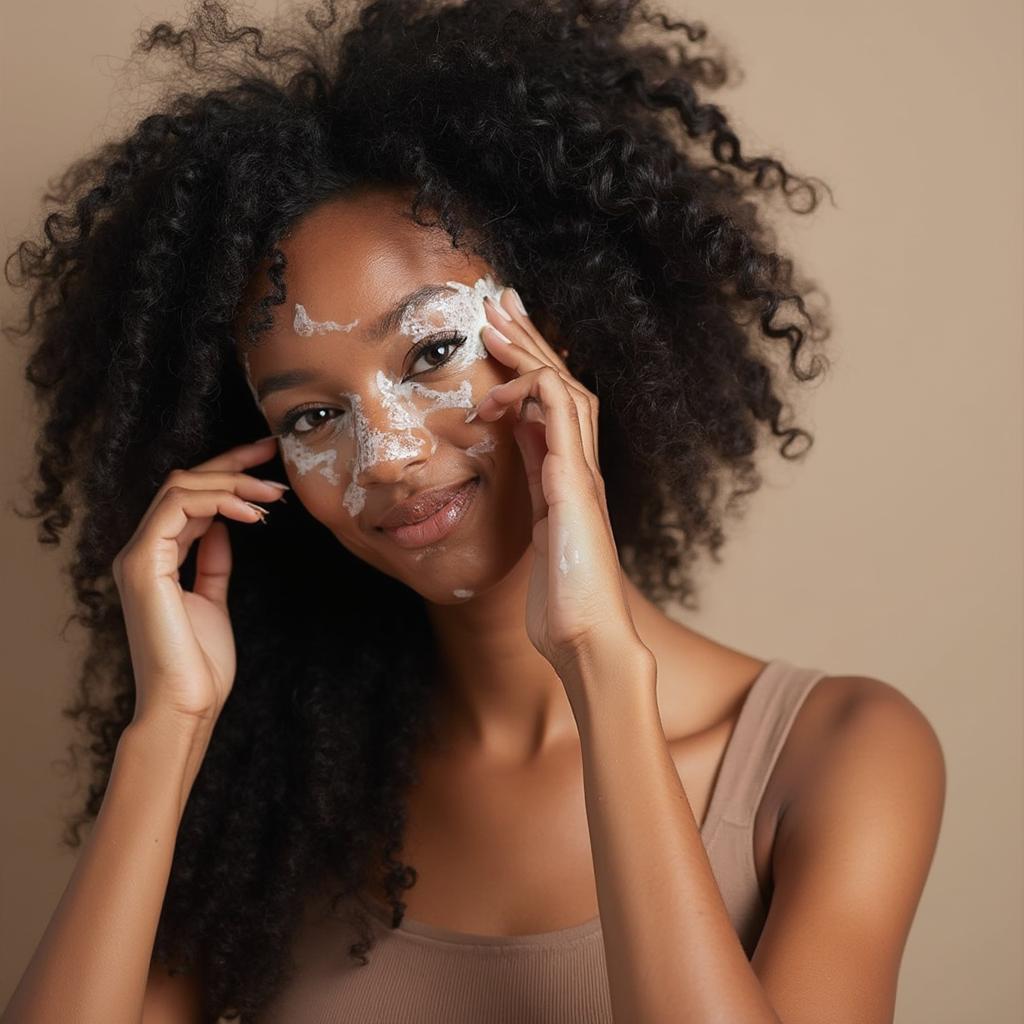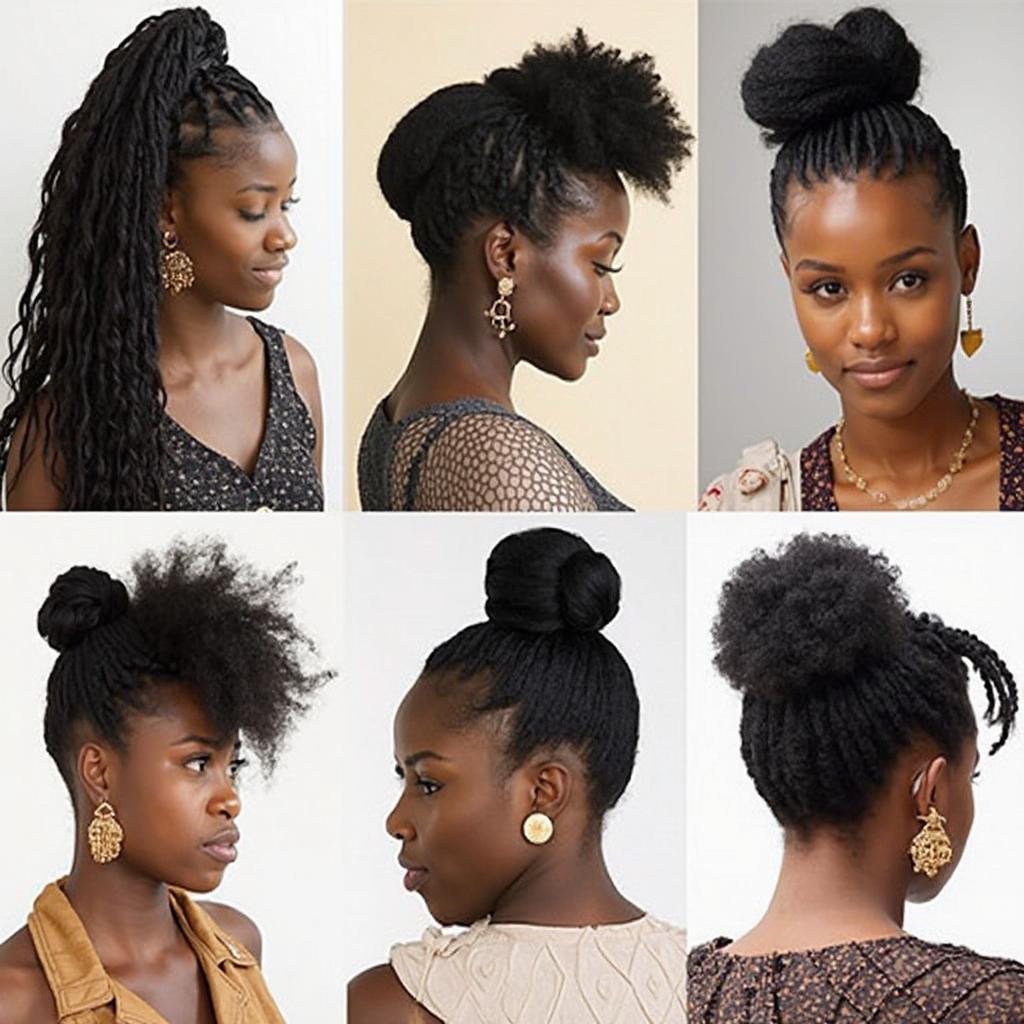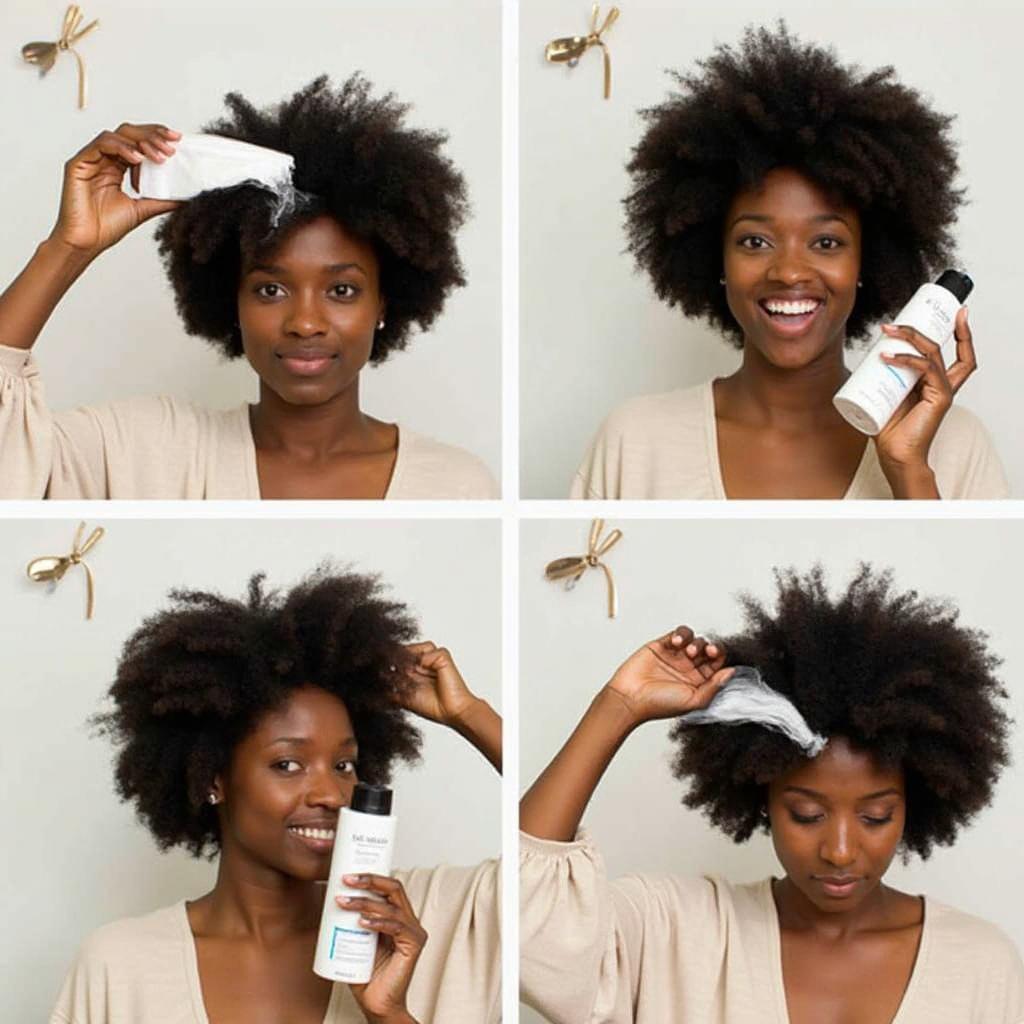Your cart is currently empty!

Tips Taking Care Natural Black Hair
Natural black hair is beautiful and versatile, but it requires specific care to maintain its health and vibrancy. Understanding its unique texture and needs is key to unlocking its full potential. This guide offers practical tips for taking care of natural black hair, from cleansing and conditioning to styling and protecting.
Understanding Your Hair Type
Before diving into the tips, it’s crucial to understand your specific hair type. Natural black hair ranges from tightly coiled 4c curls to looser 4a textures. Knowing your hair type helps determine the most effective products and techniques. For example, 4c hair often benefits from richer, heavier moisturizers, while 4a hair might thrive with lighter products. This understanding is fundamental to maximizing your hair care routine.
Cleansing and Conditioning for Healthy Hair
Washing your hair is a crucial step in maintaining its health. However, over-washing can strip natural oils, leading to dryness and breakage. Aim to wash your hair every 1-2 weeks, or as needed, using a sulfate-free shampoo. Follow up with a deep conditioner to replenish moisture and strengthen your strands.
Proper conditioning is essential for managing natural black hair. Deep conditioning treatments, applied weekly or bi-weekly, can dramatically improve hair health, restoring moisture and elasticity. Consider incorporating a leave-in conditioner for daily moisture, especially for drier hair types. Choosing the right conditioner is as crucial as choosing the right shampoo. Look for products that cater to your specific hair type and address your individual hair concerns.
 Deep Conditioning Treatment for Natural Black Hair
Deep Conditioning Treatment for Natural Black Hair
Moisturizing and Sealing for Long-lasting Hydration
Moisturizing and sealing are critical for maintaining healthy, hydrated natural black hair. Black hair tends to be drier than other hair types due to its tight curl pattern, which makes it harder for natural oils to travel down the hair shaft. Regular moisturizing with water-based products and sealing with oils or butters can help lock in moisture, preventing dryness and breakage. This process ensures that your hair stays hydrated, soft, and manageable. Experiment with different oils and butters, such as coconut oil, shea butter, or jojoba oil, to find what works best for your hair.
Styling and Protecting Your Natural Crown
Protective styling, such as braids, twists, or weaves, can minimize manipulation and protect your hair from environmental damage. However, it’s essential to avoid styles that are too tight, as they can lead to hair loss and scalp irritation. When styling your hair, opt for wide-tooth combs or your fingers to detangle gently, starting from the ends and working your way up to the roots. This minimizes breakage and preserves the integrity of your curls. Similar to male hair care tips, gentle detangling is crucial for all hair types.
 Various Protective Styles for Natural Black Hair
Various Protective Styles for Natural Black Hair
Healthy Diet and Lifestyle for Optimal Hair Growth
Just like the rest of your body, your hair needs proper nutrition to thrive. A balanced diet rich in vitamins, minerals, and protein is essential for healthy hair growth. Staying hydrated by drinking plenty of water is also crucial for maintaining moisture levels in your hair. Regular exercise, stress management techniques, and adequate sleep also contribute to overall hair health. These lifestyle choices can significantly impact the strength and growth of your natural black hair.
What are the best products for natural black hair?
Choosing the right products is crucial. Look for sulfate-free shampoos, moisturizing conditioners, and natural oils like coconut or jojoba. Just as with olive tree care tips, natural ingredients often yield the best results.
How often should I wash my natural black hair?
Washing too frequently can strip natural oils. Aim for once every 1-2 weeks, or as needed, depending on your hair type and lifestyle. Remember that over-washing can lead to dryness and breakage.
What are some easy protective styles for natural black hair?
Braids, twists, and buns are excellent protective styles. They minimize manipulation and protect your hair from environmental damage, promoting healthy growth. Much like fly trap care tips, consistent care yields the best results.
 Moisturizing Natural Black Hair for Optimal Hydration
Moisturizing Natural Black Hair for Optimal Hydration
Can I use heat styling tools on my natural black hair?
While heat styling can be used occasionally, it’s important to use heat protectant products and limit the frequency to avoid damage. Excessive heat can dry out your hair and lead to breakage.
How can I prevent breakage in my natural black hair?
Gentle handling, regular moisturizing, and protective styling are key to preventing breakage. Avoid tight hairstyles and be mindful when detangling. Just as with bengali hair care tips, understanding your hair’s specific needs is key.
Conclusion
Taking care of natural black hair requires a dedicated routine and understanding of its unique needs. By following these tips for taking care of natural black hair, you can maintain its health, vibrancy, and beauty. Remember to be patient, consistent, and embrace your natural crown.
FAQ
- What are the benefits of using a satin bonnet or pillowcase?
- How can I identify my hair porosity?
- What are some natural remedies for dry scalp?
- How can I promote hair growth?
- What are some good hairstyles for transitioning hair?
- What are some common mistakes to avoid when caring for natural black hair?
- What are the benefits of pre-pooing?
Need help with your car? Contact us via WhatsApp: +1(641)206-8880, Email: [email protected] or visit us at 456 Pine Avenue, Toronto, ON M5V 2J4, Canada. Our customer service team is available 24/7. We also offer helpful resources on tips for going down on a girl in a car.

Leave a Reply